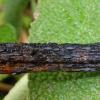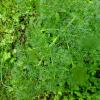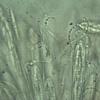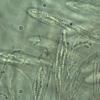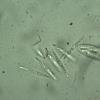
25-01-2026 23:23
Hello! I found this species that resembles Delitsc

05-02-2026 15:07
Found on a fallen needle of Pinus halepensis, diam

05-02-2026 06:43
Stefan BlaserHello everybody, Any help on this one would be mu

18-08-2025 15:07
 Lothar Krieglsteiner
Lothar Krieglsteiner
.. 20.7.25, in subarctic habital. The liverwort i

02-02-2026 21:46
Margot en Geert VullingsOn a barkless poplar branch, we found hairy discs

02-02-2026 14:55
 Andgelo Mombert
Andgelo Mombert
Bonjour,Sur thalle de Lobaria pulmonaria.Conidiome

02-02-2026 14:33
 Andgelo Mombert
Andgelo Mombert
Bonjour,Sur le thalle de Peltigera praetextata, ne

31-01-2026 10:22
 Michel Hairaud
Michel Hairaud
Bonjour, Cette hypocreale parasite en nombre les

... found in the reserve "Rocha da Pena" - on old Apiaceae stems.
The plants did not flower and I don`t know the species. There was no strong smell (no fennel smell or such).
The spores measure about 27-30/3,5-4 µm.
I have no literature on Rhytismatales with me so I cannot compare.
Regards from Lothar

Dear Joey,
thank you very much. I will call my specimen Hypoderma cf. siculum for the present. I know that it is a difficult genus (which genus is easy?).
Best regards from Lothar

